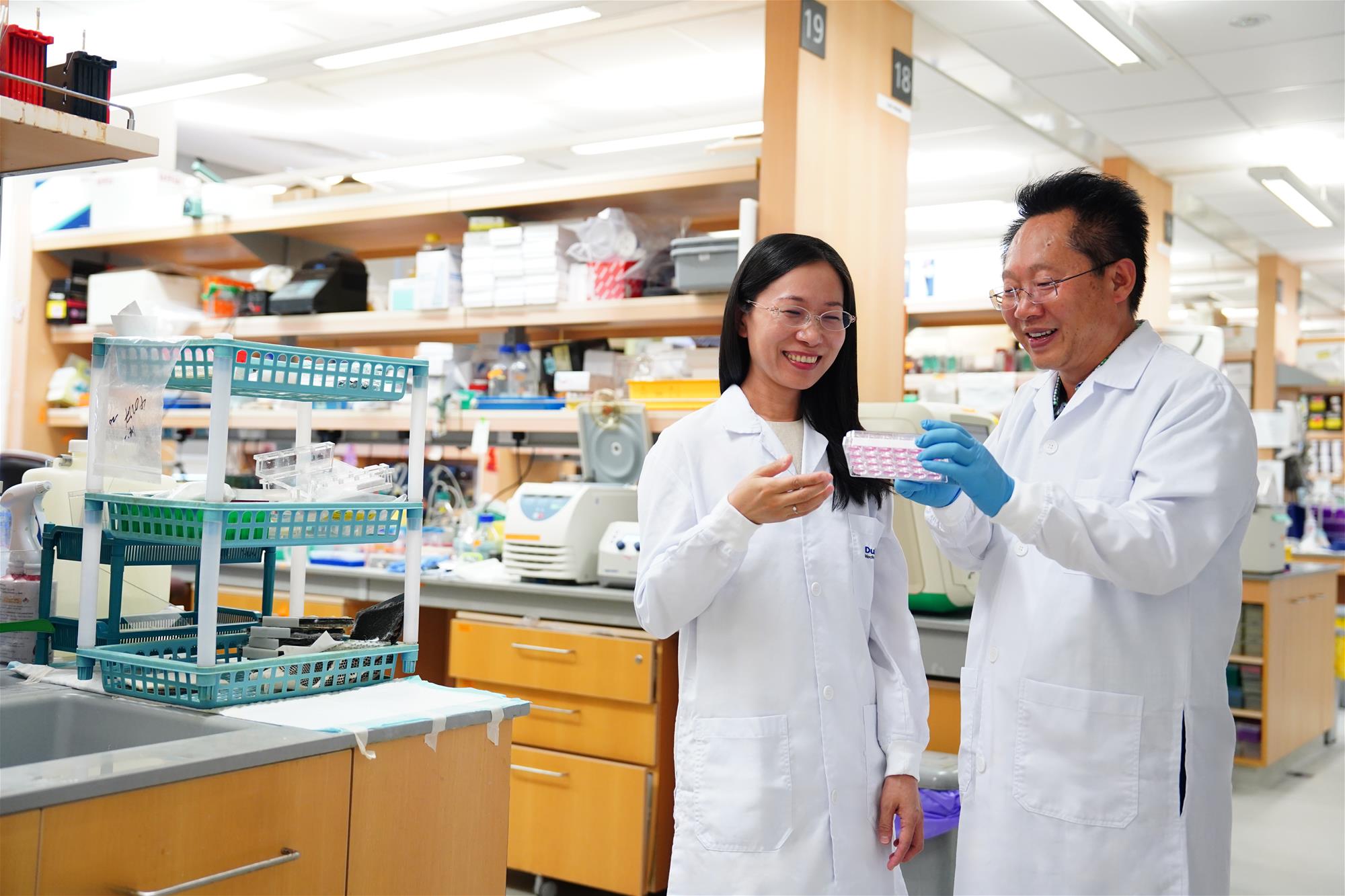Back
Wednesday, 11 Sep, 2024
Duke-NUS’ new study reveals protein critical in brain development
While the human brain weighs just 1.4 kilograms, its intricate network of a staggering hundred billion neurons remains one of science’s greatest mysteries.

Professor Wang Hongyan (left) and Dr Ma Dongliang hope to unravel the complexities of the human brain (Credit: Norfaezah Abdullah, Duke-NUS)
A recent breakthrough by Duke-NUS Medical School’s scientists has begun to unravel these complexities, identifying a protein that could hold the key to understanding brain development; and paving the way for potential treatments of neurological disorders such as seizures and autism.
The team in the laboratory of Duke-NUS Professor Wang Hongyan homed in on a protein called Arl2 that is particularly abundant in the brain, demonstrating that it is required for the development of mammalian neural stem cells, which originate from the nervous system and can grow into various types of brain cells.
Specifically, the protein does so by regulating the growth of microtubules, a major cellular component involved in cell division and maintaining the cell’s shape.
Moreover, Arl2 merges with another protein, Cdk5rap2, stabilising the latter to help in organising the microtubules for brain development.
In their preclinical study, the scientists also found that when Arl2 is lacking, neural stem cells—the building blocks of the brain—do not proliferate during development, leading to a range of neurodevelopmental disorders such as microcephaly, a condition where a baby’s head is much smaller than expected because its brain has not developed properly.
Dr Ma Dongliang, Principal Research Scientist with the Neuroscience & Behavioural Disorders Programme and first author of this study, which was published in the journal PLOS Biology, said:
“Prior to our study, the function of Arl2 in mammals during brain development was unknown. Our data shows, for the first time, that the protein has a critical role to play in the development of the cerebral cortex, which is the outermost layer of the brain, by regulating the growth of microtubules.”
Professor Wang Hongyan, acting Programme Director of the Neuroscience & Behavioural Disorders Research Programme and senior author of the study, added:
“Our data show a new pathway in the regulation of microtubule growth and proliferation of neural stem cells during brain development. Further studies that target this pathway may facilitate the development of potential therapeutic strategies for neurodevelopmental disorders like microcephaly.”
The scientists plan to investigate other critical pathways involved in neural stem cell proliferation in the developing brain. It’s part of efforts by Duke-NUS’ Neuroscience and Behavioural Disorders Programme to unravel the secret behind human intelligence and to translate their discoveries into diagnostic and therapeutic strategies for brain disorders.
Structure of Arl2 and Cdk5rap2 under super resolution microscopy. Remarkably, Arl2 (red) and Cdk5rap2 (green), a protein involved in microtubule organisation, formed ring-like structures that merged with one another at the centrosome, a cellular structure involved in the process of cell division. This suggests that Arl2 is needed for the formation of the centrosome during brain development.
Using live-cell imaging, we observed the effects of blocking Arl2 action (shArl2) in mice neural stem cells. The speed of microtubule growth (green comets) was significantly slower in shArl2 compared to the control. This suggests that Arl2 is critical for microtubule growth.
Reference: Ma D, Lin KY, Suresh D, Lin J, Gujar MR, Aung HY, Tan YS, Gao Y, Vincent AS, Chen T, Wang H. Arl2 GTPase associates with the centrosomal protein Cdk5rap2 to regulate cortical development via microtubule organization. PLoS biology. 2024 Aug 13;22(8):e3002751.